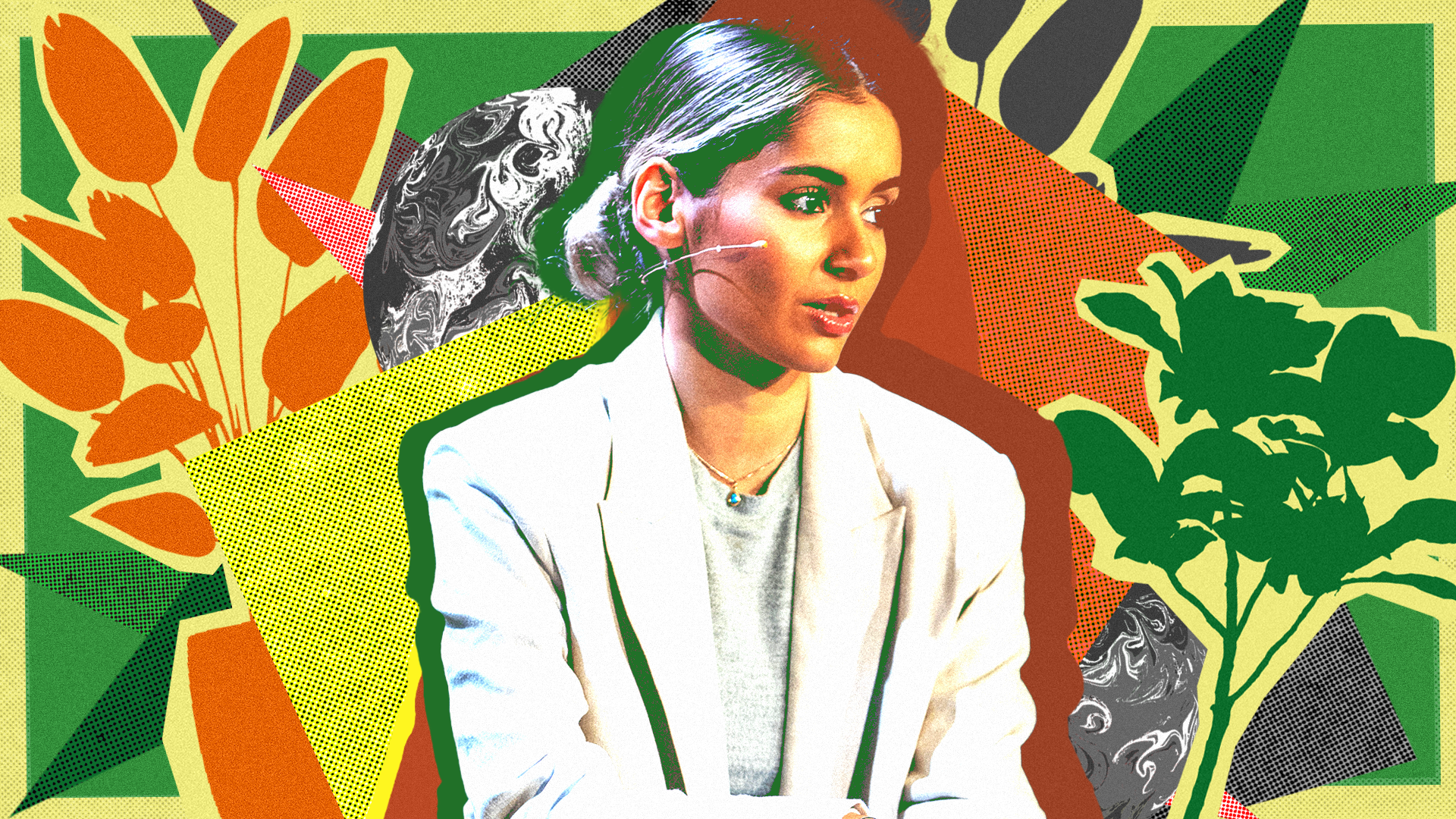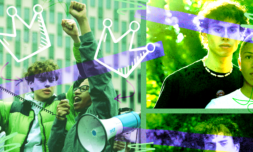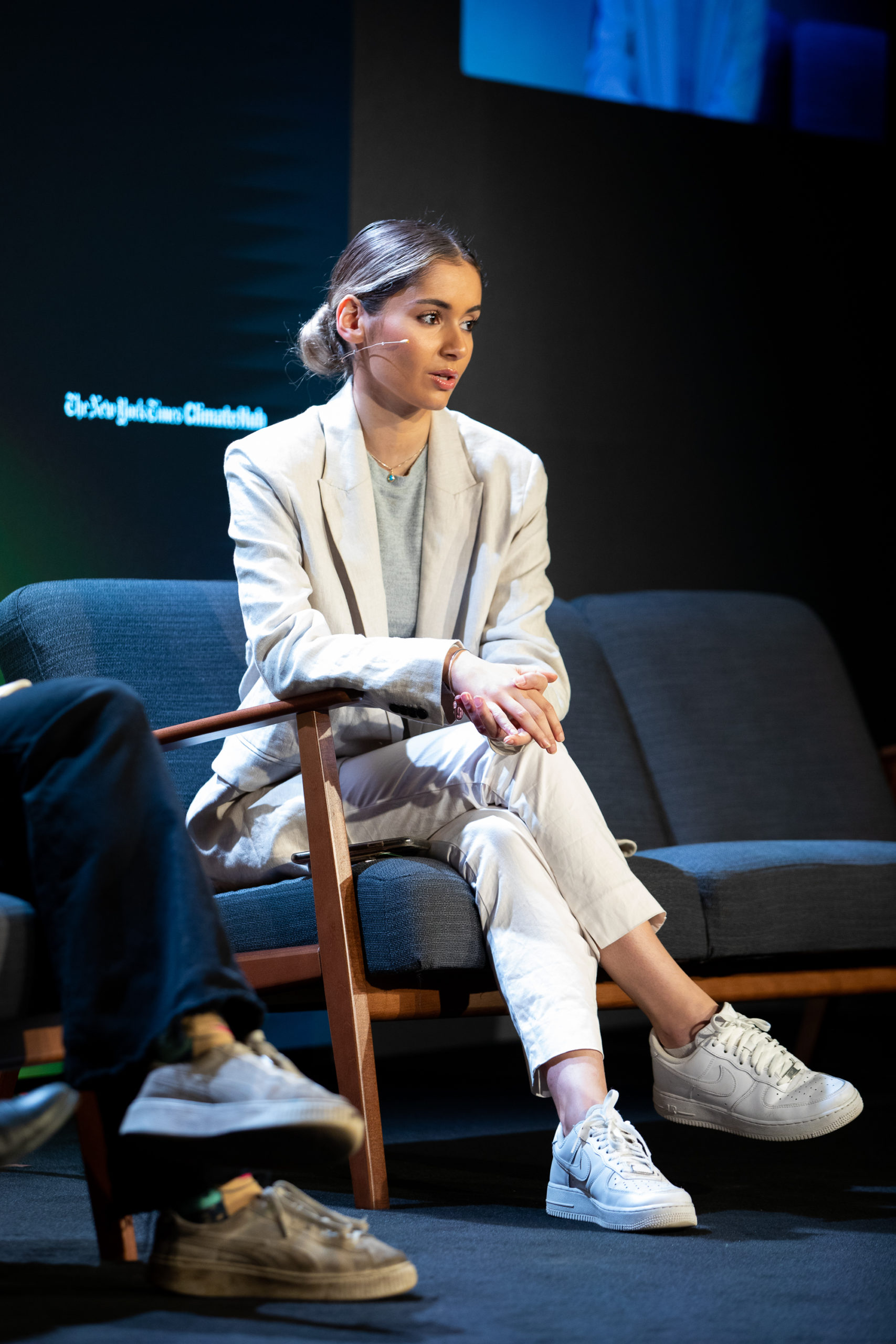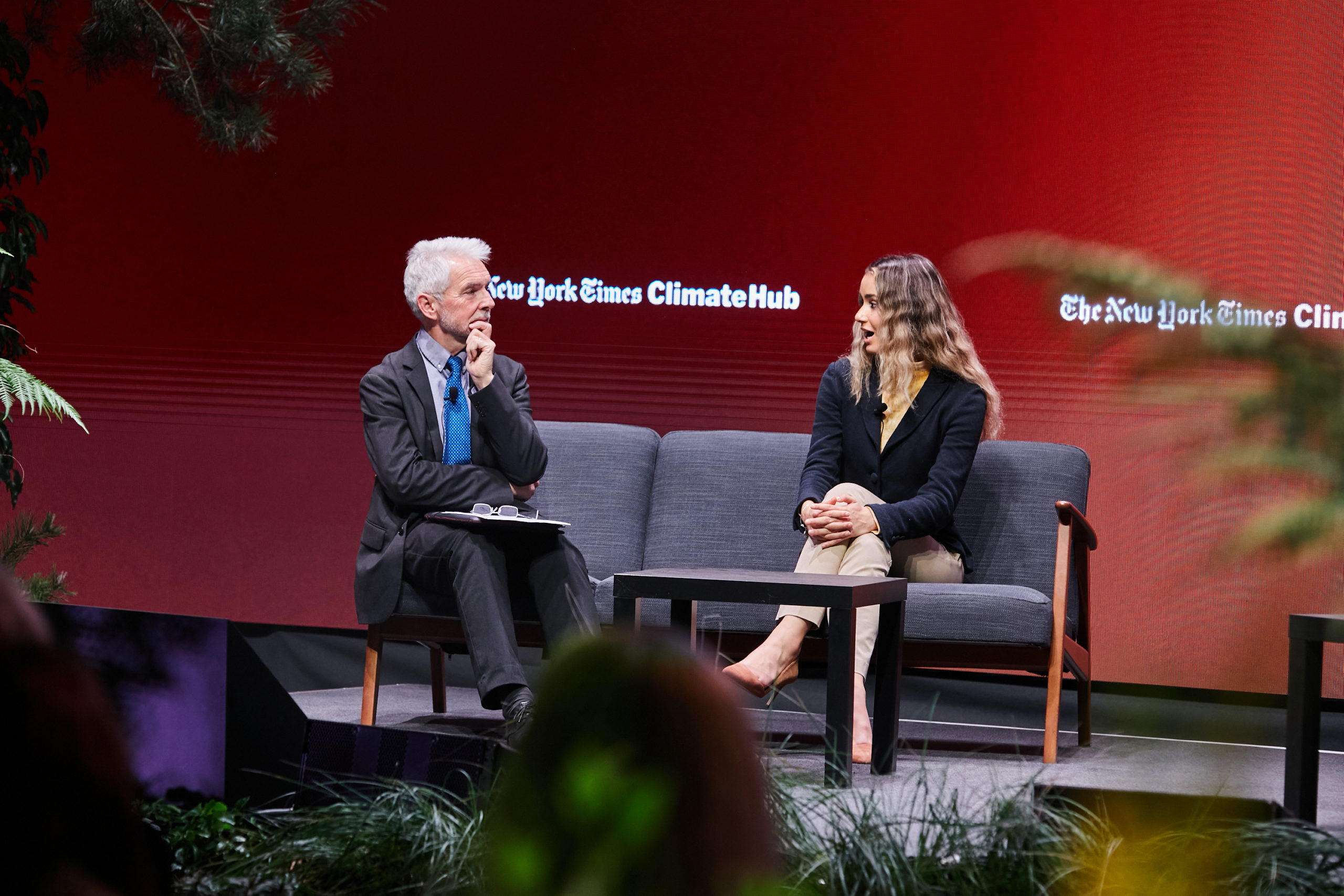Gen Z activist Sophia Kianni founded Climate Cardinals; a non-profit organisation dedicated to closing the climate translation gap. She believes that education is the most valuable tool in the fight to safeguard our planet’s future.
At just 20 years old, Sophia Kianni is both the youngest member on the United Nations Youth Advisory Group on Climate Change and the founder of Climate Cardinals, an international non-profit organisation that’s working to make the climate movement more accessible to non-English speakers.
‘By making sure the world is as well-informed as possible, we’re guaranteeing that everyone [involved in the fight] is able to present their solutions in a holistic manner,’ she says.
We spoke to the Iranian-American Gen Zer about Climate Cardinals and the importance of education when it comes to unified, global action against climate change.
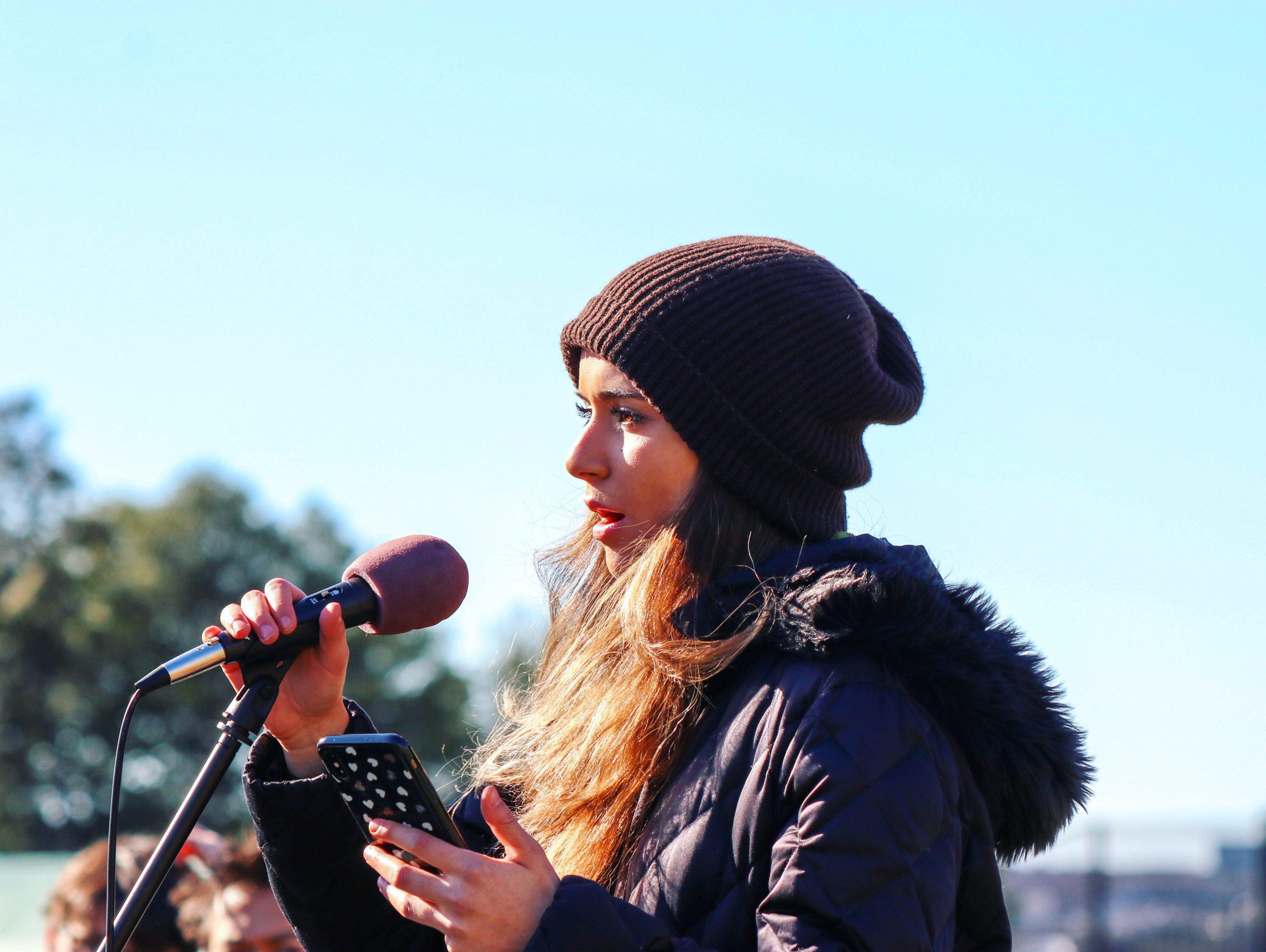
What sparked Sophia’s drive to make a change?
Explaining the motivation behind her activism, Sophia tells Thred that regular trips to her parents’ homeland of Iran laid the groundwork for her involvement in bettering climate education.
On one of her recent visits, she was struck by how little her relatives knew of the ongoing crisis. Not by choice, but due to an absence of informative resources they were actually able to understand.
From this point onwards, Sophia would begin to examine why more than half of the global speaking population is being denied the opportunity to make sense of the data surrounding our planet’s largely uncertain future.
‘Those being disproportionately affected by climate change deserve to have access to the resources they need to make sense of the disasters that are destroying their communities,’ she says. ‘The more these groups of people are informed about the climate crisis, the greater chance we have to coordinate collective efforts in protection of the Earth. English cannot be the barrier to entry.’
So, how has Sophia gone about overcoming such a hurdle, one that’s resulting in a concerning amount of misinformation and low public interest towards tackling this issue?
The answer is Climate Cardinals, a website with an in-built database of environmental-orientated documents and agreements, all of which can be viewed in 100 languages and counting.
To date, the organisation has facilitated the translation of over 6,000 pages from various sources including local and major publications, official governing bodies, and scientifically-led studies.
View this post on Instagram
It’s done so with the help of some 9,000 bilingual volunteers (most of them students who fall squarely within the Gen Z bracket), from 40+ countries.
In addition, Climate Cardinals has partnered with UNICEF and Translators Without Borders to spread their multilingual material.
As Sophia stresses, recruiting translators from a wide-reaching scope of locations has always been of the utmost importance to her.
This is because the ‘whole purpose’ of her work is to ensure that it is ‘breaking through echo chambers’ and ‘expanding outside of the typical White English-speaking demographic that tends to run the climate movement.’
Unfortunately, this is proving to be increasingly difficult in the age of 24-hour news which tends to focus substantially on stories that may trigger a sense of doom.
People are more likely to switch off when confronted with page after page of anxiety-inducing statistics and, in response, Climate Cardinals deliberately priorities short-form content.
Its goal is to provide readers with the most succinct, timely, current, research-backed summaries available so as to avoid deterring them with complex information that’s bound to have them turn a blind eye.
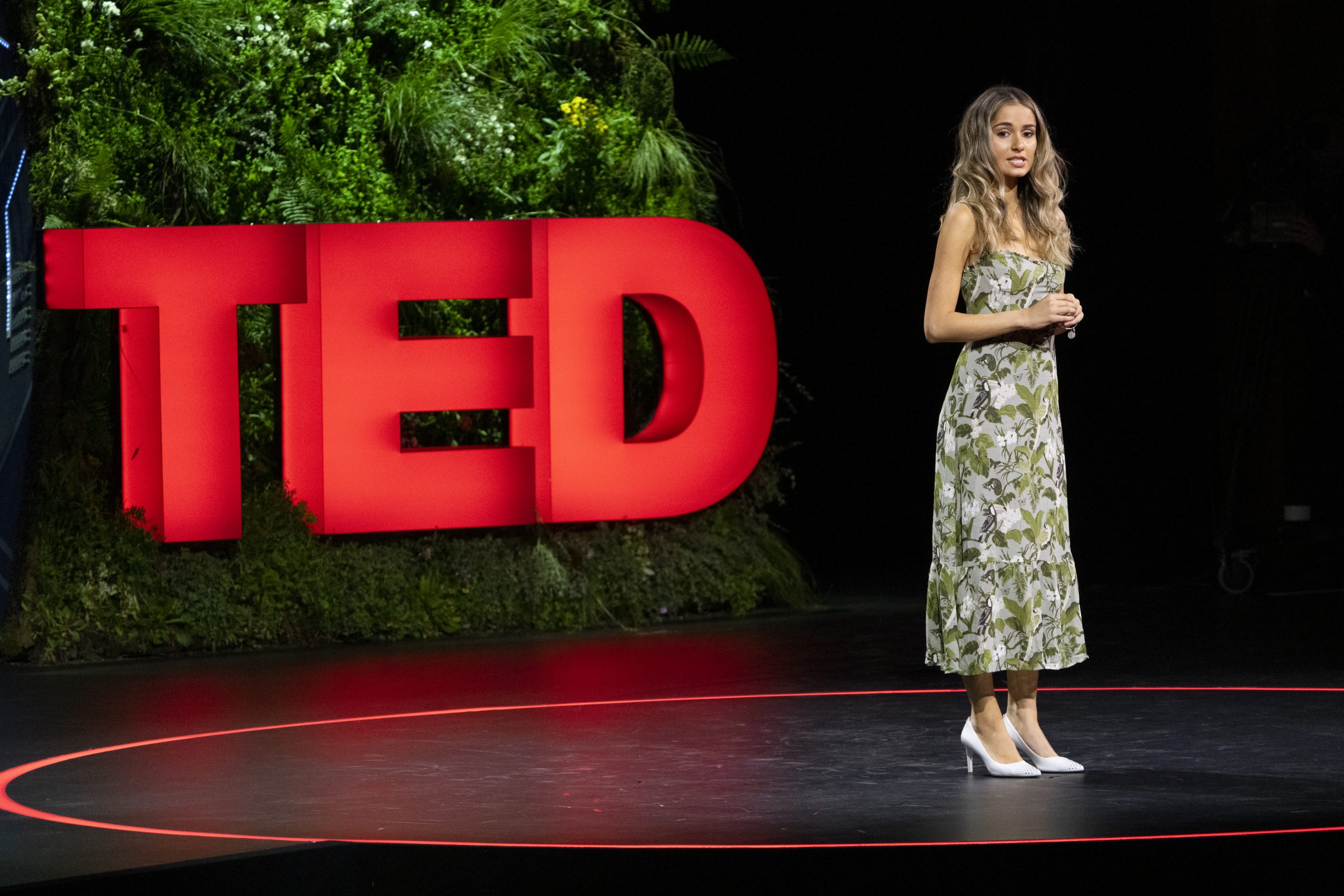
What can individuals do with the knowledge they’re given?
What good is convincing people of the real and pressing threat posed by climate change, however, if they aren’t able to apply the knowledge that Climate Cardinals is delivering?
This brings us to the second facet of Sophia’s approach to activism: amplifying the voices of those most disproportionately affected by providing a space to present solutions that will benefit them and, ultimately, us all.









